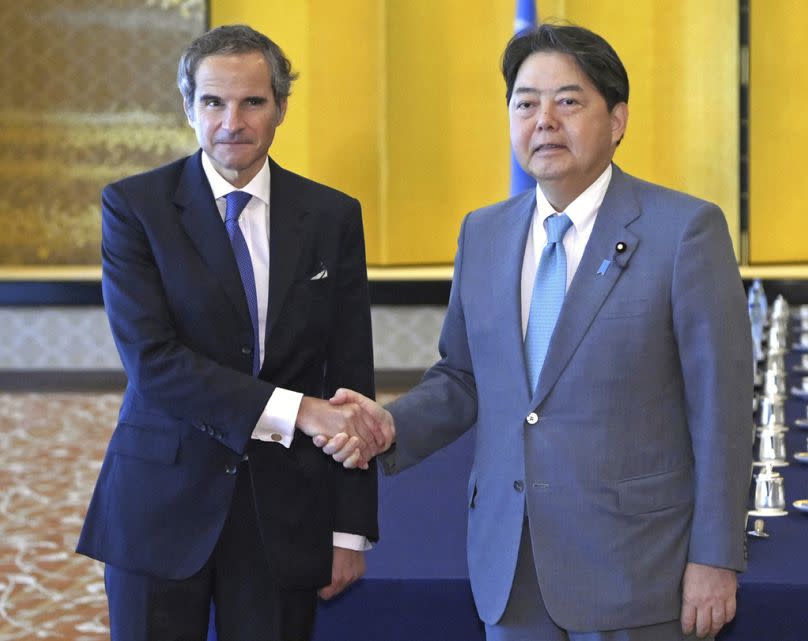The International Atomic Energy Agency backs Japan's plan to discharge treated water from Fukushima
The head of the UN nuclear agency, Rafael Mariano Grossi, met with Prime Minister Fumio Kishida to submit the final report on the water release.
All of IAEA's interim evaluations have been positive and the final report said the water sampling, testing and monitoring plans involved in the release were adequate and fulfilled international requirements.
Grossi, at an earlier joint news conference after meeting with Foreign Minister Yoshimasa Hayashi, said the report sums up the IAEA’s work over the past two years and handing it to Kishida marks “an important chapter”.
Hayashi thanked “IAEA’s impartial and professional efforts on their review from safety and regulatory aspects.” He promised Japan’s further effort to provide detailed explanations to the international community “based on scientific evidence and with high degree of transparency.”
The treated radioactive water, stored in about 1,000 tanks that are nearing their 1.37 million ton capacity, must be removed to prevent accidental leaks and to make room for the plant’s decommissioning.
Japanese regulators finished their final safety inspection of the equipment last Friday and the plant operator Tokyo Electric Power Company Holdings is expected to receive a permit for discharging the water in about a week. It could do so anytime afterwards, though the start date is still undecided amid concerns and protests.

South Korea, China and some Pacific Island nations oppose the water release because of safety concerns and political reasons. Local fishing groups are worried their reputation will be damaged even if their catch is uncontaminated, and others like local water and beach businesses and tourism outfits are concerned.
Japan has sought support from the IAEA to gain credibility for the plan and assurances that its safety measures meet international standards. The IAEA has made several trips to Japan since early 2022 but acknowledges it can't make decisions for the Japanese government, including stopping the wastewater release.
Grossi on Tuesday will also meet with heads of Japanese ministries and nuclear agencies relevant to the water release. He later will visit the Fukushima plant to see some of the newly constructed facilities for the water release during his four-day visit.

 Yahoo News
Yahoo News 
